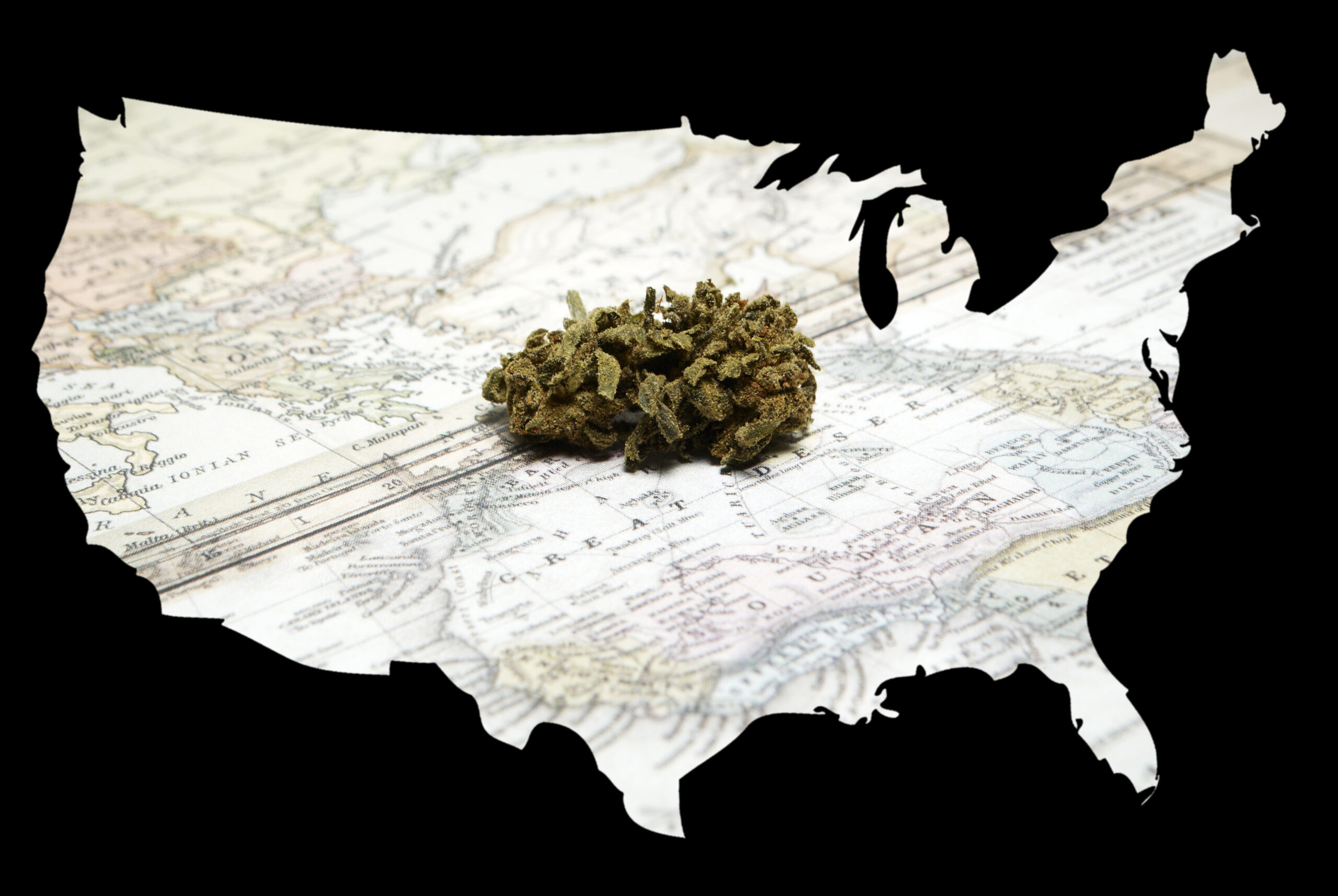Connect with us
Published
3 months agoon

While there has been an immense amount of progress surrounding cannabis reform over the past decade, organizations like cannabis advocacy and justice group Last Prisoner Project (LPP) continue their work knowing there is still a long road ahead.
As we venture into another year, LPP has announced its plan to mobilize “the largest bi-partisan coalition of cannabis advocacy, industry, and grassroots organizations in the U.S.” later this year, according to a press release from the organization.
The organization is teaming up with a number of diverse advocates and stakeholders to convene in Washington, D.C. ahead of the April 20 cannabis holiday for a “420 Unity Day of Action” meant to put pressure on Congress and President Joe Biden to fully deschedule cannabis from the Controlled Substances Act (CSA), along with corresponding relief measures.
LPP was formed in 2019 and is dedicated to freeing those who are still incarcerated due to the War on Drugs, especially as laws change while individuals are still left without seeing justice.
Underscoring the Need for Retroactive, Justice-Based Relief
LPP notes the strides in recent years, namely the 24 states and D.C. that have legalized cannabis for adult use and the fact that most of the U.S. population now live in states with some form of legal cannabis.
Still, “tens of thousands of people remain in state and federal prison,” the organization said. “It is imperative that as the federal government seeks to downgrade cannabis’s status from a Schedule I drug, advocates are pushing for the full legalization of cannabis, complete with effective strategies for retroactive relief.”
Along with the announcement, LPP released a memo to guide advocates on best practices for leveraging a federal cannabis rescheduling decision and fighting for more comprehensive administrative and congressional reform measures.
Citing the ongoing effort to potentially reschedule cannabis from Schedule I to Schedule III on the CSA, LPP noted that the action could result in “favorable” tax and banking reform for the cannabis industry and more research for cannabis patients.
Even so, “there are no changes in how the criminal legal system punishes cannabis users. Rescheduling is a peripheral change that signals the reevaluation of cannabis but not the release of cannabis prisoners or relief for those who continue to be burdened by the lasting consequences of the carceral system,” LPP said, arguing that full descheduling and removing cannabis from the CSA is the “only way to end the vast majority of cannabis-related criminal sanctions.”
The organization notes the need for the federal government to not only downgrade the current status of cannabis but to also introduce retroactive relief for prior unjust arrests, convictions and criminal sentences surrounding cannabis. It carries forward to list a number of potential avenues for relief for advocates to consider and build upon based on any schedule shift for cannabis.
“We need an all hands on deck approach to ending the unjust war on our community, which means leveraging incremental wins as we build toward bigger, bolder reforms.” said LPP Executive Director Sarah Gersten, who also authored the memo. “While rescheduling alone will not offer retroactive relief, it would be a historic shift in policy, and we must be ready to push open the door of reform when it happens. We have outlined several ways the administration can achieve real relief and add substance to the President’s mostly symbolic reforms so far.”
A Growing List of Participants
While more organizations are invited to join the effort, current participants include members of the Marijuana Justice Coalition (MJC) like DPA, SSDP, NORML, Veterans Cannabis Coalition, Parabola Center; members of the Cannabis Freedom Alliance (CFA) Reason Foundation, and Law Enforcement Action Partnership; and industry groups like National Cannabis Festival, National Craft Cannabis Coalition, National Cannabis Industry Association (NCIA), Minority Cannabis Business Association (MCBA), Indigenous Cannabis Industry Association (ICIA), Asian Cannabis Roundtable, and National Association of Black Cannabis Lawyers (NABCL) and more.
Maritza Perez Medina, director of federal affairs for the Drug Policy Alliance, shared that the organization is “thrilled” to be a part of the upcoming effort.
“We call on Congress to pass comprehensive marijuana reform legislation that deschedules marijuana and provides an equitable framework for marijuana regulation. At this critical juncture for federal marijuana reform, our communities will not be sidelined,” Medina said. “In addition, we implore President Biden to use his executive authority to bring people home from prison immediately and end some of the most egregious harms of marijuana criminalization.”
Individuals interested in attending can sign up here.


New Mexico Governor Calls Homeland Security Secretary’s Response to Pot Seizures ‘Inappropriate’


DMT Lab Discovered in Brentwood, California During Robbery Raid


States with Adult-Use Pot Saw Decrease in Alcohol Use, No Increase in Teen Substance Abuse


Research Shows Some Rolling Papers Have High Levels of Heavy Metals


MedMen Files for Bankruptcy


Carmelo Anthony Launches Cannabis Brand
